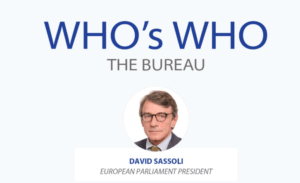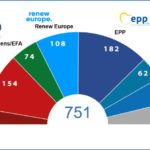MEPs elected the Parliament president as well as vice-presidents and quaestors in July 2019. Find out from our infographic who was chosen for Parliament’s key posts.
Together with the Parliament president, vice-presidents and quaestors make up the bureau, which takes decisions on matters of internal organisation for the institution. While the president oversees all Parliament’s work and represents it in all legal matters and external relations, he may delegate some duties to vice-presidents. They can also replace him when chairing plenary sessions. Quaestors deal with financial and administrative matters that concern MEPs.
All of these posts are only for two-and-a-half years so MEPs vote for a president, vice-presidents and quaestors at the beginning of each parliamentary term and again at mid-term.







Leave a Reply